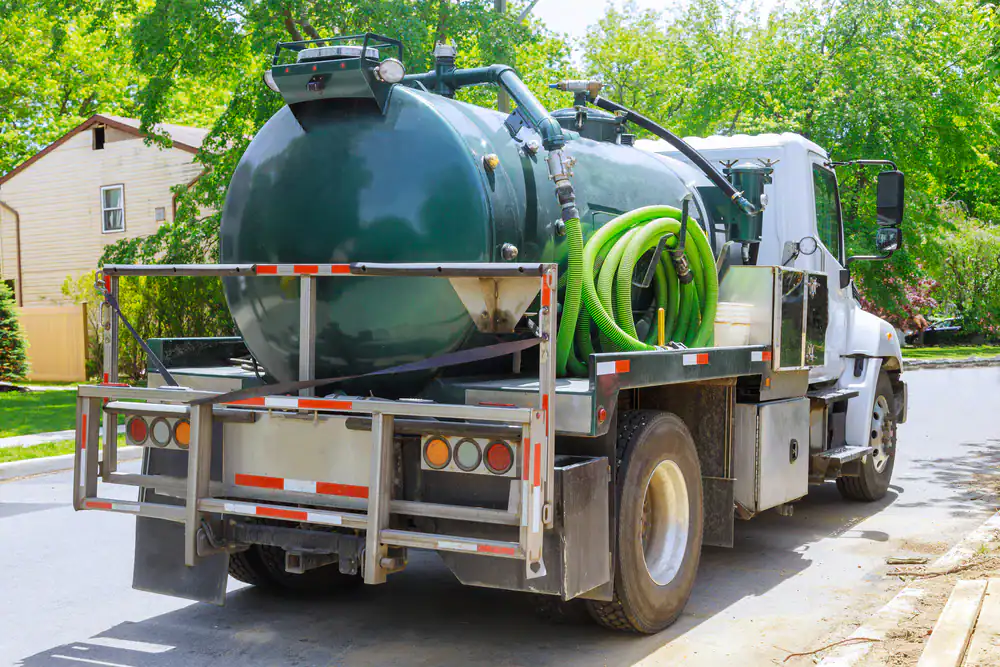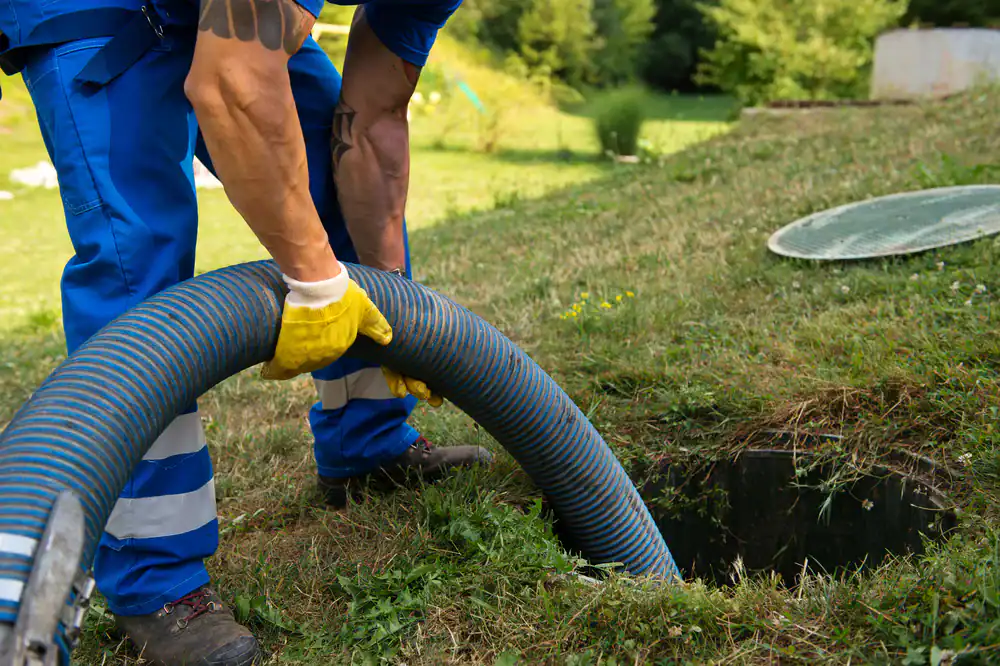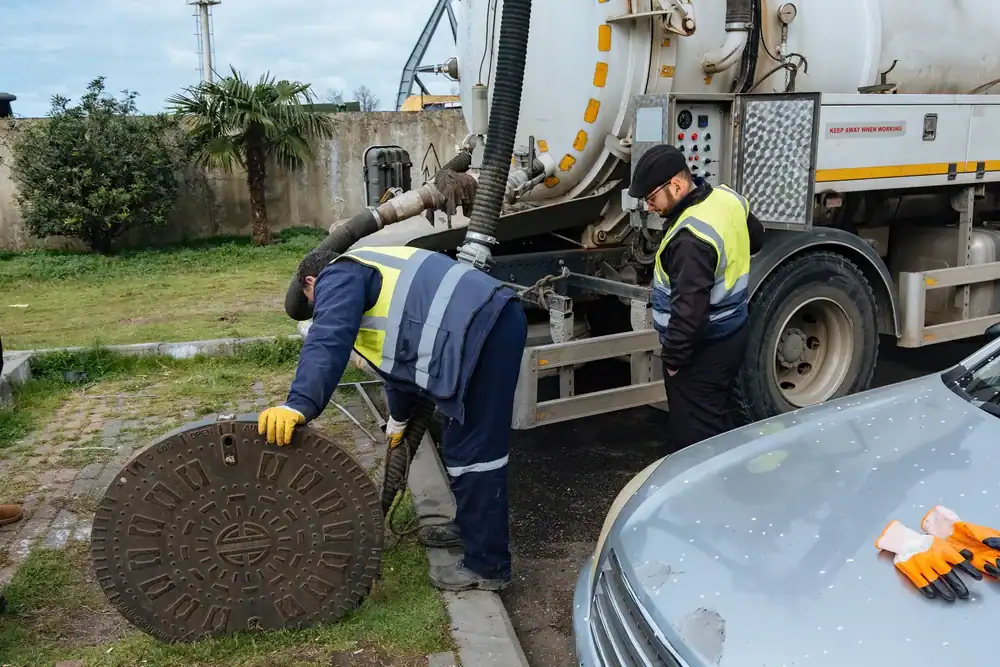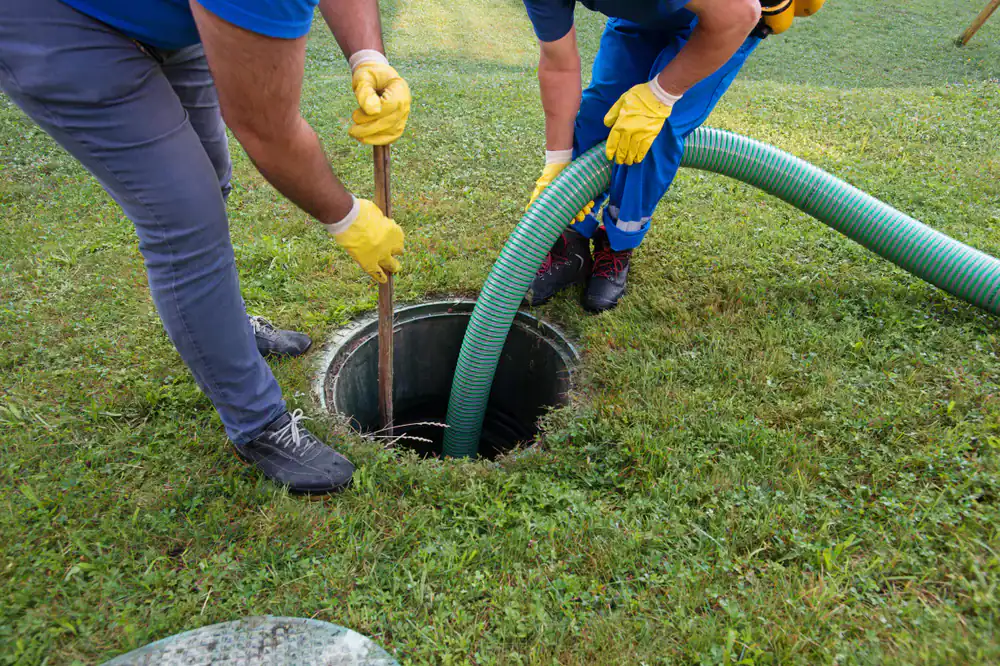
Our Reviews

No more sewage odors drifting across your yard. No more soggy patches of grass that won’t dry out. No more worrying about when the next backup will hit.
When we finish a septic system repair, your drains flow freely again. Your yard stays dry, even after heavy rains. You get back to using your plumbing without thinking twice about it.
That’s what proper septic tank plumbing looks like—systems that handle everything you throw at them without drama or expensive surprises down the road.
All Rooter Hydro Jetting Experts Inc. has been solving Chicago’s toughest septic problems for years. We’re not the new guys learning on your property—we’re the local team that understands how Chicago’s clay soil and weather patterns affect your septic system.
We’re licensed, bonded, and insured because septic work isn’t something you trust to anyone. When we show up, you’re getting professionals who’ve seen every type of septic failure this city can produce.
West Garfield Park homeowners call us because we give upfront pricing and actually answer our phones when emergencies happen. No runaround, no inflated estimates after we’re already on-site.

First, we diagnose the real problem—not just the symptoms you’re seeing. Our team uses professional equipment to locate blockages, test drain field function, and identify exactly what’s causing your septic issues.
Next, we explain what we found and give you a clear price before starting any work. No surprises, no “while we’re here” add-ons that double your bill.
Then we fix it right the first time. Whether that’s hydro jetting clogged septic lines, restoring your drain field, or handling emergency septic repairs, we use the right tools and techniques to solve the problem permanently. You’ll know the job is done when your system works the way it’s supposed to—quietly and reliably.

Ready to get started?
Our septic tank plumbing services cover everything from emergency septic repairs to complete drain field restoration. We handle septic line clog repair, failed drain fields, and backup prevention—all the problems that make septic ownership stressful.
For West Garfield Park properties, we understand the unique challenges. The area’s older homes often have septic systems that weren’t designed for modern water usage patterns. Chicago’s freeze-thaw cycles can crack pipes and damage components. Heavy clay soil can cause drainage issues that other contractors miss.
We bring the right equipment for Chicago conditions—professional hydro jetting systems that clear the toughest blockages, drain field restoration technology that saves you from costly replacements, and emergency response capability when you can’t wait until Monday morning.

The most obvious signs are sewage odors around your drain field area, especially during wet weather. You might also notice unusually green patches of grass or soggy areas that don’t dry out even during dry spells.
Inside your home, you’ll typically see slow-draining fixtures, gurgling sounds from your plumbing, or actual sewage backups in lower-level drains. These problems usually get worse over time, not better.
If you’re seeing any combination of these issues, your drain field is likely struggling to process wastewater properly. The sooner you address it, the more options you have for repair instead of replacement.
Many drain field problems can be repaired without full replacement, depending on what’s actually wrong with your system. Issues like soil compaction, biomat buildup, or minor pipe damage often respond well to restoration techniques.
We use professional assessment tools to determine whether your drain field can be restored or if replacement is necessary. Factors like the age of your system, extent of damage, and soil conditions all play a role in this decision.
Modern septic drain field restoration methods can often revive systems that would have required complete replacement just a few years ago. The key is getting an accurate diagnosis from someone who understands the difference between repairable problems and systems that are truly beyond saving.
Emergency septic repairs like clearing clogged lines or restoring basic function usually take a few hours to complete. We prioritize getting your system working again so you can use your plumbing normally.
More comprehensive work like septic drain field restoration can take one to three days, depending on the scope of the problem and your property’s specific conditions. Weather and soil conditions can affect timing, especially for drain field work.
We’ll give you a realistic timeline upfront and keep you updated if anything changes. Most customers are surprised how quickly we can resolve problems that seemed like major disasters when they first called.
Chicago’s clay soil is tough on septic systems because it doesn’t drain well naturally. When drain fields get saturated, they can’t process wastewater effectively, leading to backups and surface pooling.
Freeze-thaw cycles are another major factor. Pipes can crack when water freezes inside them, and frost can push components out of alignment. Older systems weren’t always installed with adequate frost protection.
Heavy water usage during short periods can also overwhelm systems that were designed for different usage patterns. Modern appliances and fixtures use water differently than they did when many of these systems were installed, sometimes causing septic line clog repair needs that weren’t anticipated in the original design.
Yes, we provide 24/7 emergency septic services throughout West Garfield Park and the greater Chicago area. Septic emergencies don’t wait for business hours, and neither do we.
When you call for emergency service, you’ll reach our actual emergency line—not an answering service that takes messages. We respond quickly because we understand that septic backups create health hazards and property damage that get worse the longer they’re left untreated.
Our emergency septic repairs include the same upfront pricing and professional standards as our scheduled work. You won’t pay inflated “emergency rates” just because your septic system picked an inconvenient time to fail.
Septic drain field restoration typically costs 30-50% less than complete replacement, depending on your system’s condition and your property’s specific requirements. Restoration also avoids the extensive excavation and landscaping damage that comes with full replacement.
The exact cost depends on factors like the size of your drain field, soil conditions, accessibility, and what restoration methods are needed for your specific situation. We provide detailed estimates that break down exactly what work is required and why.
Many West Garfield Park customers are surprised to learn that restoration is even an option. Traditional thinking was that failed drain fields had to be replaced, but modern septic tank plumbing techniques can often revive systems that would have been written off as total losses just a few years ago.